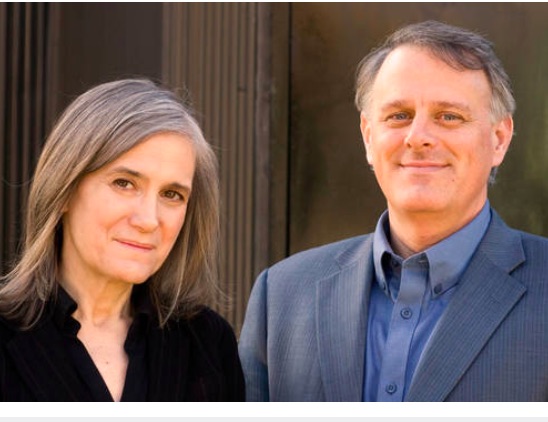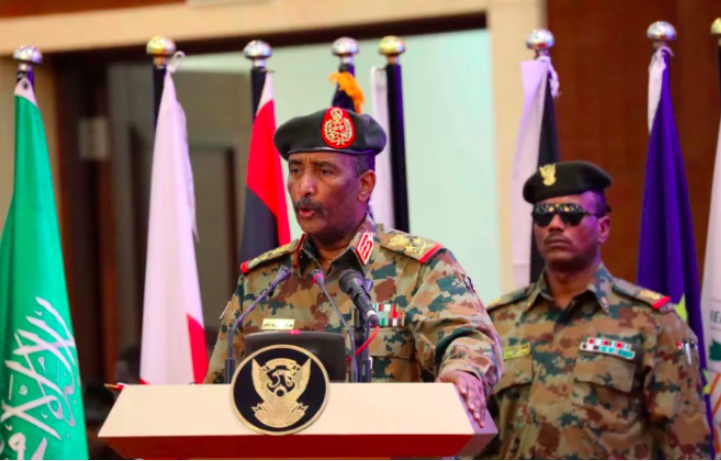. . SUSTAINABLE DEVELOPMENT . .
An article by Lok Raj Joshi based on articles in The Himayan Times, The Kathmandu Post , the UN climate Summit and the United Nations Climate Change website.
The United Nations Framework Convention on Climate Change (Conference of Parties, COP-25) is in progress in Madrid, Spain. The event started on December 2 and will conclude on December 13. Heads of state/governments and environment ministers from 197 countries as well as representatives of various organizations working in the climate change sector are participating. The conference aims to negotiate plans to limit global warming in line with the Paris Agreement. Under the Paris Agreement, governments had agreed to update their climate plans by 2020.

(Click on image to enlarge.)
However, it has been reported that a little (not much) progress has been made till now in COP-25 on Article 6 of the Paris Agreement that calls for minimizing unfair carbon markets. It needs to be noted that carbon emission is the prime cause of global warming. It has also been reported that responsible parties are far from finding compromise positions on mobilizing finance and support for loss and damage. This has drawn huge attention from the victims of global warming, climate scientists, social justice protesters and people around the globe. An estimated 500,000 people, led by 16-year-old climate activist Greta Thunberg marched through Madrid on Friday night. One million people marched in Santiago, Chile.
A government team from Nepal led by the Minister for Forests and Environment, Shakti Bahadur Basnet, is taking part in COP-25. He is scheduled to address the special session of COP-25 on Wednesday. Nepal is going to propose formulating a plan for coping with the adverse conditions resulting from global warming. Nepal is also lobbying for the Green Climate Fund. Highly affected countries like Nepal are entitled to receive it as compensation from the responsible countries that are releasing large quantity of carbon into the atmosphere.
Although Nepal has not been able to raise the issue of global warming strongly in the international forums, Nepal is serious about the disasters caused by it. Scientific evidence clearly shows that Nepal is one of the most climate-vulnerable countries in the planet and it is already facing the disasters of the man-made global warming. The latest landmark study in the Hindu Kush Himalaya region, which covers 3,500 kilometres across Afghanistan, Bangladesh, Bhutan, China, India, Myanmar, Nepal and Pakistan, has projected an alarming future for economically and geographically challenged developing countries like Nepal. The study by the International Centre for Integrated Mountain Development (ICIMOD) has concluded that the region would lose one-third of the region’s glaciers by the end of the century.
(article continued in right column)
(Article continued from the left column)
Considering the geographical and economic characteristics of Nepal, climate change is an urgent matter for Nepalese people. First, its northern region is comprised of the snow-covered Himalaya mountains including the top of the earth Sagarmatha (internationally famous as The Mount Everest) and the south is the Terai (plain area). The middle hilly region is mostly dependent on water flowing from the Himalayas and the crops from the Terai. The Terai itself depends on water from the north and supplies food to the rest of the nation. This relationship makes the adverse effects of global warming even more complex, more intense and more widespread creating a vicious cycle of disasters in Nepal. Second, agriculture and tourism based on natural beauties including the Himalayas, rivers, glaciers, lakes, jungles and wild animals are the major sources of income for Nepal. Hydroelectricity is the most potential area that is expected to contribute to realization of the Nepalese dream of prosperity. Unfortunately, these all have been the first targets of global warming.
For us, the Nepalese people, it is unfortunate to see the reluctance of the responsible parties to accept the scientific conclusions regarding global warming and to internalize the gravity of the adversities caused by it. Its serious adverse effects which are unpredictable at the same time, have threatened the livelihood of the Nepalese people. In the most recent instance of extreme weather events in the country, incessant heavy rainfalls, floods and landslides claimed more than five dozen lives in various parts of the country.
The Prime Minister of Nepal, KP Oli has said, “The country is extremely vulnerable to the impacts of climate change although our contribution to greenhouse gas emissions is negligible. Rising temperature, retreating glaciers, erratic rainfall and extreme weather events are causing damages to our people and economy. The climate is becoming more vulnerable and unpredictable. We received a delayed monsoon. We also had first tornado in our recorded history. As a result of rapid industrialization, the adverse impact of climate change is also increasing. Some countries are well prepared to deal with them, but countries like Nepal are most vulnerable. I urge scientists to consider small mountainous and small-island nations while preparing the report.” This is what Prime Minister Oli said addressing the Second Lead Authors Meeting of Intergovernmental Panel on Climate Change IPCC Working Group (II) held in Kathmandu, the capital city of Nepal, in July this year.
More than 260 climate scientists from more than 60 countries and bureau members IPCC had gathered to discuss the pressing issue. As an intergovernmental body of the United Nations, the IPCC provides scientific evidence of climate change; its impact on various sectors. It also informs about the natural, political and economic impacts of global warming along with possible solutions. “Meeting here in Kathmandu reminds us in a very direct way of the strong interdependence of human and natural systems, and how both are threatened by climate change. Key aspects of our report and reasons to act on climate change are very evident here,” said Working Group II Co-Chair Debra Roberts.
From the global viewpoint, no country in the world is going to benefit from global warming in the long run. Therefore, it is in the best interest of all people around the world to tackle this issue wisely and timely. No development can be called a real development when it does not care about the future of humanity and the home planet. Also, it is not only a pure environmental issue; it is a case of social injustice too. Innocent people are facing the dreadful consequences of irresponsible activities by others. It is high time that all environmental scientists, youths, civil societies, political leaders and all responsible citizens around the world raise their voice to make all the concerned parties realize the gravity of the issue and take appropriate actions without any delay.








